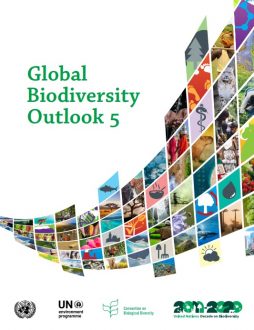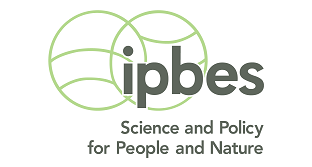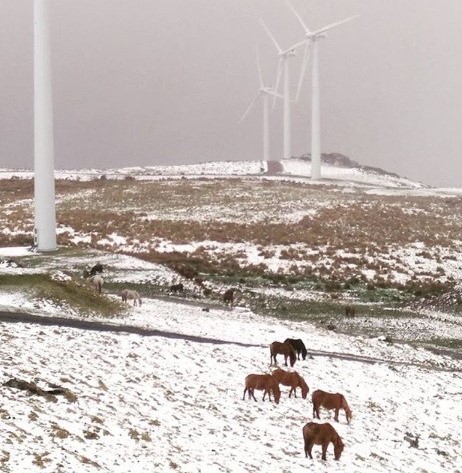IPSI Newsletter

TOPIPSI NewsletterIPSI Newsletter, October 2020
IPSI Newsletter, October 2020
2020.10.29
Dear IPSI members and friends,
Greetings from the IPSI Secretariat in Tokyo, Japan. Even as we continue to work from home as the months drag on, IPSI and its members continue to stay active in a wide variety of projects and activities related to landscape and seascape approaches towards “societies in harmony with nature”, even during the ongoing COVID-19 pandemic. It is our greatest hope that you and your friends and family are staying safe and healthy during this difficult time. Thanks to many of you for staying in touch!
This month’s newsletter contains an announcement of the recipients of this year’s round of funding from the Satoyama Development Mechanism (SDM), plus two upcoming IPSI-related online events: a session at this year’s International Forum for Sustainable Asia and the Pacific (ISAP); and another at the upcoming Global Landscapes Forum (GLF) Biodiversity Online Conference. We are also pleased to share the publication of the Global Biodiversity Outlook 5 by the CBD, a call for nominations for a workshop on modelling nature futures scenarios from our friends at IPBES, and one of our latest case studies, from the University of Santiago de Compostela in Spain.
As always, please feel free to contact us to submit any new case studies or other information about your activities, or if you have any questions or comments.
IPSI Secretariat
SDM 2020: Results Announcement
The Satoyama Development Mechanism (SDM) is an IPSI Collaborative Activity that since 2013 has provided small-grant seed funding to projects by IPSI members around the world. For its 2020 round of funding, the SDM secretariat has selected six projects from the many applications that were received. The recipients this year are:
- Accelerated Rural Development Organization (ARDO), [NGO, Ghana]
“Transforming rice production along the Weto range towards sustainable socio-ecological services” - Centre for Chinese Agricultural Policy (CCAP) / UNEP- IEMP of Chinese Academy of Science, [Academic, educational and/or research institute, China]
“Strengthen partnerships and scaling up living model of using SEPLS in community-based agrobiodiversity enhancement and livelihood security for adapting to changes and crisis” - Environmental Protection & Conservation Organisation (EPCO), [NGO, Mauritius]
“Enhancing socio-ecological production landscapes & seascapes at ‘Riviere du Cap’ wetlands to reduce pressure on the marine ecosystem in Mauritius” - National Dong-Hwa University (NDHU), [Academic, educational and/or research institute, Taiwan]
“Development of locally-sensitive indicators of resilience as a tool for adaptive landscape management in Taiwan’s SEPLS” - Nirmanee Development Foundation, [Indigenous or local community organisations, Sri Lanka]
“Recognizing Kandyan Forest Home Gardens (KFHGs) of Sri Lanka as Socio-ecological Production Landscape” - VICAM: Vicuñas, Camelidos y Ambiente, [Academic, educational and/or research institute, Argentina]
“Altiplano, Jujuy Province, NW Argentina”
For more information on SDM, please see the IGES website here. For questions regarding SDM application, please contact the SDM Secretariat directly at sdm@iges.or.jp.

ISAP2020 Thematic Track Session: “The Satoyama Initiative, transformative change, and societies in harmony with nature”
The IPSI Secretariat at the United Nations University Institute for Advanced Studies (UNU-IAS) and the Institute for Global Environmental Strategies (IGES) will co-organise an online session on “The Satoyama Initiative, transformative change, and societies in harmony with nature” on 12 November at 16:30-18:00 (JST) during the International Forum for Sustainable Asia and the Pacific (ISAP) 2020, with support of the Ministry of the Environment, Japan. The session will focus on how the concept of SEPLS, as promoted under the Satoyama Initiative, can contribute to transformative change towards the vision of “societies in harmony with nature”, particularly considering impending new realities in the post-COVID-19 era. The IPSI Secretariat’s Research Fellow Maiko Nishi will deliver a presentation on “Lessons learned from managing SEPLS and their implications for transformative change in the post-COVID19 era”, and Senior Communications Coordinator William Dunbar will help moderate discussion to consolidate lessons on the SEPLS concept and its relevance for the post-COVID-19 era, as well as implications for the post-2020 Global Biodiversity Framework.
More details can be found on the ISAP2020 website here.

Global Landscapes Forum Session: "Seizing the landscape opportunity to catalyse transformative biodiversity governance"
A session titled “Seizing the landscape opportunity to catalyse transformative biodiversity governance” and including SEPLS perspectives from the Satoyama Initiative will be held as part of the upcoming Global Landscapes Forum (GLF) Biodiversity Digital Conference. The event is organized by the PBL Netherlands Environmental Assessment Agency along with partners including UNU-IAS, host of the IPSI Secretariat. According to the session webpage, “The new CBD Post-2020 Global Biodiversity Framework (GBF) will build on a theory of change aiming for transformative shifts and involving the whole of society. Landscape-based initiatives and approaches across the globe have evidenced the potential contribution of non-state actors in achieving global goals. Landscape governance arrangements are complementary to existing CBD approaches, and align with the GBF objectives. This session will highlight and discuss the role of landscape approaches and arrangements undertaken by non-state actors to support the GBF, discuss how policies could support this and illustrate the potential for area-based non-state actor GBF commitments and verification.”
The event will be held on 29 October 2020 at 10:15-11:45 (CET). For more information including registration, please see the Global Landscapes Forum website here.

New Publication: Global Biodiversity Outlook 5
Global Biodiversity Outlook (GBO) is described as the flagship publication of the Convention on Biological Diversity, providing a summary of the state and trends in biodiversity – and the Aichi Biodiversity Targets in particular – worldwide on a periodic basis. The fifth edition of the GBO was recently published, with the conclusion that global biodiversity loss continues at an alarming pace, but that through a number of key transitions, we can shift towards sustainable pathways. Landscape approaches contribute in many sections of the publication, and the Satoyama Initiative is mentioned specifically as a positive model for Aichi Target 7, on “Sustainable Agriculture, Aquaculture and Forestry”. The GBO contains a great deal of information based on developments over the UN Decade on Biodiversity 2011-2020, and it will be a key reference for policymaking over the next several years.
The full report and an executive summary of GBO 5 are available for download at the CBD website here.

IPBES Call for Nominations: Workshop on Modelling Nature Futures Scenarios
The Intergovernmental Science-Policy Platform on Biodiversity and Ecosystem Services (IPBES) recently sent out a notification that it is now accepting nominations for experts to take part in its “Workshop on Modelling Nature Futures Scenarios”. This workshop is related to the work of the IPBES task force on scenarios and models, which is developing a draft “Nature Futures Framework” and related methodological guidance to serve as tools for formulating new, desirable future scenarios for nature and people. The workshop will consist of an online meeting planned for 12-15 January 2021, and possibly physical meetings later in that year.
For more information including instructions for the nomination process, please see the full notification on the IPBES website here.

Recent Case Study: Higher Polytechnic School of Engineering, University of Santiago de Compostela
The IPSI Secretariat is proud this month to share one of our recent case studies from the ECOAGRASOC project of the Higher Polytechnic School of Engineering at the University of Santiago de Compostela in Spain. The case study is titled “Enhancing communication and co-learning in socio-ecological landscape management through elicitation of local communities’ visions and values”, and was also included as a chapter in the Satoyama Initiative Thematic Review vol. 5.
According to the case study, Serra do Xistral is a mountainous area in the North of the Autonomous Community of Galicia (Spain). Its Atlantic oceanic climate, characterized by abundant precipitation, winds, and fogs, facilitated the formation of a landscape characterized by extensive wet heathland and bog habitats. The area is characterized by a singular ownership regime, the “Communal Forest Land” (MVMC). Decisions on both management approaches and the benefits obtained from the common land are made at MVMC Community Assemblies. Visions and values of local communities are essential in the decision-making process, and in turn have major influence on the management of natural resources and the configuration of the landscapes. The EU-financed project “LIFE in Common Land” was developed in Serra do Xistral, involving eleven MVMC. Its aims include the development of management approaches for the protection of priority habitats, including incentives like payment for conservation results. A qualitative approach for obtaining information from local communities was developed. Results allowed for characterization of views on nature and ecosystems of the local communities, whose values in many instances differ from those of environmental conservation institutions. Also, important elements of sense of place and attachment of the community members to their environment were identified, as well as environmental conflicts related to wildlife-livestock interactions. These results could be used to develop new ways of understanding and co-learning, which could form the basis of novel approaches to ecosystem management and conservation.
For the full case study, please see the IPSI website here.
Contact
Please be sure to let the Secretariat know if there are any changes in your e-mail address or contact information.
Secretariat of the International Partnership for the Satoyama Initiative
United Nations University Institute for the Advanced Study of Sustainability (UNU-IAS)
5–53–70 Jingumae
Shibuya-ku, Tokyo 150-8925
Japan
Tel: +81 3-5467-1212
Fax: +81 3-3499-2828
Email: isi@unu.edu
If you have been forwarded this newsletter and would like to SUBSCRIBE, you can do so on the IPSI website here.


